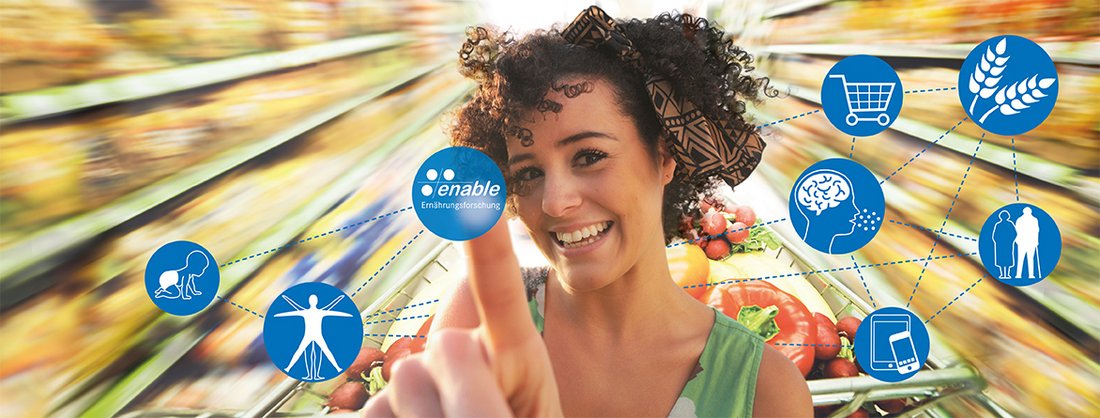enable
The enable Cluster represents a broad, interdisciplinary consortium of academic institutions, industrial, traders and craft enterprises in the field of food and nutrition located in Munich – Freising – Nuremberg.
Research
The enable Cluster works in seven interdisciplinary research projects. It builds upon the unique research activities and output of the first funding period (2015-2018) to positively influence consumer’s eating habits in different stages of life.
We promote
The enable Cluster strategically promotes young scientists in the projects as well as innovation by establishing numerous innovation instruments. A special role is assigned to PeNut, the enable-young scientist group, which is financed independently by the Federal Ministry for Education and Research (BMBF).
News & Events
3D food printing
- a brief history In LIVESTREAM on March 16, 2022, 7pm -
In the field of 3D printing, 3D food printing, often referred to as 3D food printing, forms a relatively young new technology direction. In his presentation, Prof. Thomas Lötzbeyer from Weihenstephan-Triesdorf University of Applied Sciences will give a brief overview of the most diverse aspects of 3D food printing. He will also report on exciting current developments in 3D printed nutrient-enriched and personalized nutrient-tailored innovative food solutions, such as those he is developing in enable together with Prof. Dorothee Volkert for the senior citizens sector.
The lecture will also be lifestreamed as part of the "Science for Everyone" lecture series at the Deutsches Museum on March 16, 2022 at 7 pm.
Further information on the lecture, the speaker and registration can be found here: www.deutsches-museum.de/anmeldung/wissenschaft-fuer-jedermann
NEWS: 18 October 2021
11th Update Nutritional Medicine took place online from 15-16 October 2021
Due to Corona, the 11th Update Nutritional Medicine took place as an online event this year. Many important topics for nutritionists and dieticians were presented and discussed with the participants. On the part of enable, co-organiser of the event since 2015, lectures from the field of nutritional trends were given by the cluster spokesperson, Prof. Dr. Hans Hauner under the title Nutritional Trends - Food for Future? and by Dr. Christina Holzapfel under the title "Nudging" - a concept for healthier nutrition?
NEWS: 22 September 2021: enable lecture by Prof. Dr. Klaus Menrad at the Deutsches Museum on the topic: How can consumers reduce plastic packaging for food?
The consumption of plastic packaging for food is constantly increasing worldwide - and there is no end in sight. Prof. Klaus Menrad from the TUM Campus Straubing will talk about the role consumers can play in avoiding packaging waste.
The event takes place in hybrid form: 70 people are admitted on site at the Deutsches Museum, all others are invited to join the live stream of the Deutsches Museum and actively participate in the discussion.
You can find the event flyer here.
We appreciate your interest and participation in the event!
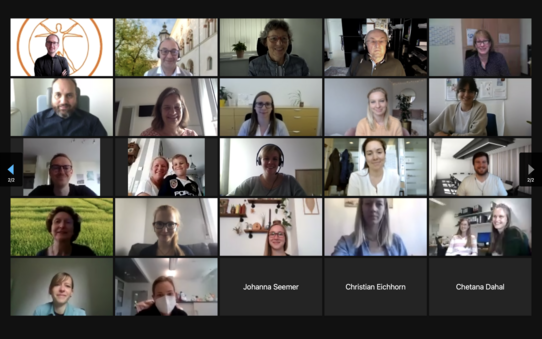
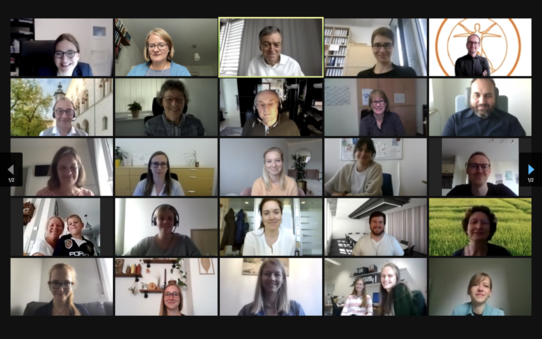
NEWS: 14.07.2021, Cluster General Assembly 2021
Today, the enable cluster plenary meeting 2021 took place online. After the speaker's report and the report from the Cluster Office, enable innovation manager Julian Dei presented the results of the second mapping approach of the food start-up scene in Greater Munich. Afterwards, the respective focus project managers presented the progress made in the 19 sub-projects (modules).
Finally, Ms. Ute Mowitz-Rudolph (Managing Director of VerbraucherService Bayern) and Prof. Gerd Harzer (Honorary Professor at TUM and formerly of Kraft Foods) gave their impressions of the status of the Cluster on behalf of the International Advisory Board of enable: They were taken with the breadth of the cluster as well as the impressive results that were achieved despite the difficult conditions of the Corona pandemic last year.
NEWS: 23 June 2021, Launch of the cross-cluster film as part of the Annual Meeting of the German Ethics Council
This year's virtual annual conference of the German Ethics Council was held under the motto: "Wohl bekommen! Dimensions of Nutritional Responsibility" - a perfect setting for the launch of the cross-cluster film, which impressively shows dimensions of modern nutrition research: interdisciplinary, innovative and addressing different age groups. The film is now available on all websites of the four BMBF-funded nutrition research competence clusters (NutriAct, nutriCARD, DietBB and enable) as well as on the BMBF website and in the nutrition research dossier. Enjoy watching!
Link to the cluster film in the Nutrition Research dossier (https://www.gesundheitsforschung-bmbf.de/de/ernahrungsforschung-was-uns-gesund-halt-8033.php ) under "Learn more" on the right-hand side, see also: BMBF Newsletter for August 2021 (https://www.gesundheitsforschung-bmbf.de/de/aktuelle-ergebnisse-der-gesundheitsforschung-12793.php)
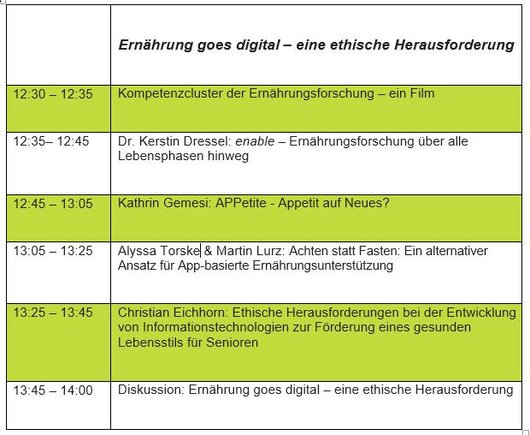
NEWS: 23 June 2021, Participation of enable at the Annual Conference of the German Ethics Council
Under the motto: Well get! Dimensions of Nutritional Responsibility, the enable Cluster participated in the practical parcour with its own session: "Nutrition goes digital - a challenge for ethics". After a short introduction of the Cluster by the managing director Dr. Kerstin Dressel, four enable young scientists presented the results of their research from the perspective of nutritional responsibility and discussed it with attendees of the well attended session (German only)
Agenda für die enable-Session – 12:30 – 14:00 Uhr
Jahrestagung des Deutschen Ethikrates, 23. Juni 2021
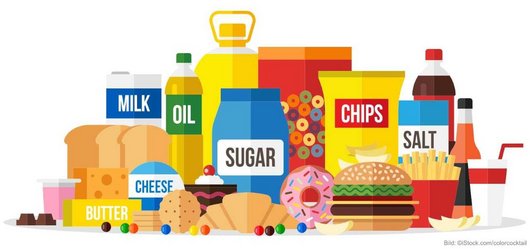
NEWS: Online Conference on Food Reformulation - Regulation and Marketing, 17-18 June 2021
Healthy diets require consumer choice in an ever more complex food environment that is shaped by consumers’ and firms’ decisions as well as by government regulation. Reformulating processed food products regarding salt, sugar, or fat content is a highly promising strategy to provide consumers with healthier alternatives within usually purchased categories. At this conference we brought together researchers from the relevant fields such as consumer science, economics, marketing, as well as food and sensory science. Our objective was to stimulate interdisciplinary development and discussion of scientific insights related to healthy and sustainable food reformulation as well as consequences for practical implementation in business and policymaking. The invited keynote speakers (Dr. Louis-Georges Soler (Institut national de la recherche agronomique, Paris) & Dr. Martin Kern (SAM Sensory and Marketing International GmbH, Munich)) contributed their insights on reformulation from academic research on the one hand and industry practice on the other hand. Seven contributed paper sessions provided perspectives from current research. Contributions covered issues in consumer perception of claims and labels, demand and policy analysis of product composition standards, and an assessment of the food science challenges in food reformulation. The second day brought in case-study perspectives in the field of meat substitutes and other reformulation challenges and concluded with a panel discussion, moderated by Christina Berndt (Sueddeutsche Zeitung), where an international perspective on food reformulation policies, their potential benefits but also the limitations and challenges in implementation, was shown. (Discussants: Dr. Robert Schaller (BMEL), Birgit Gaigl (Danone), Prof. Helen Jensen (Iowa State University) & Emma Calvert (BEUC)).
NEWS: Enable young scientists were very successful at the cross cluster conference of the nutrition research competence clusters 17-19 May 2021
After six years of funding, the second inter-cluster conference of the four BMBF-funded nutrition research clusters took place. The scientists and especially the young scientists presented their research results in the form of talks, posters and pitches. enable-PhDs were extremely successful:
We congratulate:
The two computer science PhDs Monika Wintergerst and Martin Lurz, both Technical University of Munich, for the first prize in the Cross Cluster Innovation Challenge with their "Nutridge" concept!
Neuroscientist Alyssa Torske from Klinikum rechts der Isar was awarded for the best pitch of all four clusters, which she gave on the topic: "Stress as a mediator of overeating and the effectiveness of mindfulness training as an intervention strategy".
Last but not least, nutritionist Johanna Seemer from the Friedrich Alexander University of Nuremberg-Erlangen received the second poster prize for her poster: "An individualised nutritional intervention to tackle malnutrition in nursing homes: an enable study".
NEWS: Start of the cross-cluster online conference: 17.-19. May 2021
For the next three days, the cross-cluster conference of the four BMBF-funded competence clusters in nutrition research will take place online. Greetings will be given by the Federal Ministry of Education and Research and the Federal Ministry of Food and Agriculture, many renowned international guest speakers have been recruited, a highly interesting panel discussion on the topic: "Innovative, sustainable, transdisciplinary - where does nutrition research want to go", moderated by Prof. emerit. Hannelore Daniel and of course many presentations from the clusters.
Munich, 14 April 2021
Prof. Jutta Roosen on the subject of "Sugar Tax" at the Deutsches Museum Munich
As part of the lecture series "Science for Everyone", Prof. Jutta Roosen, Chair of Marketing and Consumer Research at the Technical University of Munich, gave a lecture on the topic: "Sugar tax - how effective are nutritional policy measures?". After a short introduction about the goals and projects of the enable cluster by the managing director Dr. Kerstin Dressel, the numerous attendees were able to get an overview of the extent to which a sugar tax or the NutriScore work as nutrition policy measures. In her presentation, Prof. Roosen illustrated the current state of international research on the effectiveness of these measures. She also illustrated the effect on consumer behaviour, but also the expected interactions with food companies and between the different policy instruments. Finally, open questions on the measures and their effectiveness as well as their desired but also undesired effects were discussed.
EIT Food Entrepreneurship training offer for highly qualified PhD students from Europe
A very interesting programme for PhD students in the agri-food & agtech sector who want to turn innovative research into a successful business is the Global Food Venture Programme 2021. Application deadline: May 2021.
Further information can be found here: https://www.eitfood.eu/projects/global-food-venture-programme
Cross-cluster newsletter published!
The second joint newsletter from the four nutrition research competence clusters (DietBB, NutriAct, nutriCARD and enable) has been published.
(German only!) https://www.dge.de/fileadmin/public/doc/ws/kompetenzcluster/Clusteruebergreifender-Newsletter-Winter-2020_2021.pdf
Slim without stress through mindfulness training
In its cover story, the current issue of Focus magazine reports on how mindfulness training helps people to eat healthier and more consciously while losing weight. enable doctoral student Alyssa Torske was interviewed about the results of her study. FOCUS Magazine 07/2021.
Personalised nutrition recommendations for weight reduction
In today's issue of Ernährung Umschau, the junior research group leaders of the four nutrition research competence clusters - Marie-Christine Simon (DietBB), Christina Holzapfel (enable), Andrea Henze (NutriAct) and Christine Dawczynski (nutriCARD) - discuss the topic of personalised nutrition from different scientific viewpoints: what role do genotype, enterotype, metabolic type and nutrition type play in weight reduction? Ernährung Umschau 2021; 68(2): 26-35.
Online-innovation-workshop for young scientists
Online, 03.12.2020 + 28.01.2021: Mindset I & II
UnternehmerTUM held two online innovation workshops for young researchers from the enable cluster at the end of 2020 and in January 2021. This time, resilience and team building were the two major topics that were covered online via Zoom. On the first day, each doctoral student had to present his/her personal superpower with the help of utensils found in his/her own home. Afterwards, it was explained theoretically what resilience means and how one can strengthen one's inner resilience. Through various exercises in breakout sessions, the participants were then able to put into practice what they had learned.
On the second day, the topic of team building was brought into focus. The young doctoral students were able to work on their team skills in a playful way and at the same time reduce stress triggers with the help of resilience techniques such as vagus breathing. Intensive breakout room discussions gave the young researchers the opportunity to reflect on their personal strengths and weaknesses in the team.
Munich, 30 September 2020
Prof. Helmut Krcmar on the subject: "Healthier eating through smartphones?" at the Deutsches Museum Munich
As part of the lecture series "Science for Everyone", Prof. Helmut Krcmar, Chair of Business Informatics at the Technical University of Munich, gave a lecture on the topic: "Healthier eating through smartphones? Opportunities and barriers of digital approaches". After a short introduction about the goals and projects of the enable cluster by the speaker Prof. Hans Hauner, the audience was enlightened about the potential of digital applications in the field of nutrition. In his lecture, Prof. Krcmar provided an overview of the opportunities and limitations of digital nutrition applications and their acceptance by users. He illustrated this with exciting findings from enable research projects, such as anticipating stress-induced eating with the help of sensor data and user feedback. The audience left with a concluding vision of the future of an ideal virtual nutrition advisor who is always on hand to offer advice and support.
nutriCARD-Webinar Prototype your PhD
Online, 21.09.2020:
How do you better communicate your own research work to the outside world and develop a haptic prototype from your own work? Young scientists from the nutrition research clusters enable, DietBB, NutriAct and nutriCARD dealt with these topics, among others, during an online seminar on 21 September 2020.
Using methods such as Simon Sinek's Golden Circle or storytelling, the participants could first work on the presentation of their own research project. The young researchers were then able to test their presentation and communication skills in smaller groups.
With the help of the "rapid prototyping" method, the participants developed a prototype of their research work in a second section from materials they had available in their home office or at work. Feedback from the trainers as well as from the other seminar participants could be used to test the products.
CrossCluster Young Scientist Connect
Online, 21.09.2020:
Due to the Covid 19 pandemic, some events and formats for the joint exchange of young scientists were cancelled. Therefore, the NutriAct Innovation and Cluster Office invited to the digital "CrossCluster Young Scientist Connect! The aim was to give young scientists from all four nutrition research clusters the opportunity to exchange ideas on a wide range of topics in dynamic groups and group sizes across clusters. To realize the format, Nutriact used the network platform Wonder. To start with, the participants were divided into small groups to find out about similarities and differences in the "triangle of similarities". Afterwards, the participants exchanged ideas on a wide range of topics in a relaxed atmosphere. The event offered the participants the opportunity to think outside the box, to get to know exciting research fields and to expand their personal network.
Responsibility of Individuals and Stakeholders for Obesity and a Healthy Diet: Results From a German Survey
How to get people of different ages to eat healthier? The speaker of the enable cluster gives answers to these questions.
Fascination Research Edition 2020/24
How the enable cluster contributes to making convenience food better - the example of the Bavarian
Fascination Research Edition 2020/24
Prof. Peter Eisner on the subject of "Sustainably Healthy" at the Deutsches Museum Munich
Munich, 11.03.2020: Prof. Dr. Peter Eisner on the subject of "Sustainably Healthy" at the Deutsches Museum
enable seminar with Prof. Dr. Stefan Lorkowski
Freising, 06. February 2020: Lecture of nutriCARD speaker Prof. Stefan Lorkowski in the enable-seminar
That smells good! - How are odours perceived and processed?
February 05, 2020: enable lecture at Science for Everyone in the Deutsches Museum
The human sense of smell is often underestimated, but it has an important function for the enjoyment of food and drink, as a warning system but also during interpersonal communication. How do we perceive odours? How can odours be masked? How are odours processed by the human brain? What other sensory impressions influence human odour?
In the lecture, the anatomical and physiological basics of smelling are coupled with the idea of different olfactory perception phenomena. The role of language in olfactory perception will be explained and the extent to which smelling is linked to emotions and memories will be discussed. The aim of the lecture is to make the perception and neuronal processing of sensory impressions tangible using the example of odours and thus to show possibilities for sensory product optimisation and marketing, but also for the digitalisation of chemical perception.
Lecture series in cooperation with the Deutsches Museum in Munich, Science for Everyone
enable seminar with Prof. Dr. Ute Nöthlings
Freising, 16.01.2020: Public lecture by Prof. Dr. Ute Nöthlings at the enable seminar
The first enable seminar in the new setting took place on 16 January 2020. We are pleased that we were able to attract the speaker of the DietBB cluster from Bonn, the nutrition epidemiologist Prof. Dr. Ute Nöthlings from the University of Bonn, who also commented and discussed the lectures from our Young Investigator Network, to this kick-off event.
4th enable – Hands on workshop
Freising, 7th Oct, 2019: Communal feeding in senior citizens residences
In cooperation with the Fraunhofer IVV the enable-Cluster invited cooks and caterers working in senior citizens residences to participate at the workshop “Communal feeding in senior citizens residences”.
When moving to a senior citizens residence older people are facing numerous challenges including their meals. The Food is supposed to remain tasty whilst being adapted to the needs of the elderly. Chewing and swallowing difficulties next to a balanced diet are challenging cooks and caterers in senior citizens residences. At the enable hands-on workshop, we spoke about these challenges and presented different approaches from a scientific and practical point of view.
Presentations covered the topics malnutrition in the communal feeding sector, the change of sensory perception in older people and quality standards in communal feeding homes. After the presentations the participants took a guided tour through the technical center of Fraunhofer IVV and tasted Fraunhofer IVV’s developed products.
3rd Bonner Ernährungstage
3rd – 5th of September 2019: The competence clusters of nutritional research in Germany presented their projects at the third Bonner Ernährungstage
The Bonner Ernährungstage was a joint event of the German Nutrition Society (DGE) and the Federal Centre for Nutrition (BZfE).
On the 3rd and 4th September 2019 the DGE held a symposium on “Nutritional advice and food habits in the digital age”. The BZfE forum on the 5th, Sept., 2019 was centred around food reformulation with a focus on reduction strategies to decrease sugar, salt and fats in foods.
The enable-Cluster joined the information booth together with the other three competence clusters of nutritional research in Germany at the city hall of Bonn.
Innovationworkshop for PhD students
14th June 2019: Prototype your PhD
How can I enthuse and convince my audience of my research project? This question was the starting point for a seminar organized by UnternehmerTUM for PhD students of the enable- and DietBB Cluster. It started out with handicraft material and LEGO bricks and led to a haptic prototype. The participants used the method rapid Rapid Prototyping to test and enhance these prototypes by presenting them to each other and to pedestrians.
The importance of a story which is adapted to a targeted audience for the presentation of a research project was the central component of the second part of the workshop. Additionally, by applying storytelling and mutual feedback the PhD students were able to work on their presentational and communicational competencies.
enable Cluster contributes to the Erlebnistag der Ernährung
29th June, 2019: enable presents sensory project at an information booth at the sixth Erlebnistag der Ernährung
From 27th of June until 13th of July 2019 nutrition experts centred their attention on digitalisation. At the symposium “Richtig gut essen – Digital ist real” nutrition experts gained deeper insight into the current state and use of digitalisation along the whole value chain: From agriculture, the production and manufacture of foods to personalized nutrition and communal feeding. Furthermore, visitors were able to inform themselves on the topic of digitalization in the nutritional- and health sector. The Bavarian Ministry for Nutrition, Agriculture and Forestry used interactive games to approach the topic of digitalization.
The enable-Cluster offered smelling and tasting experiments at their information booth to the visitors. Answers to the following central research questions of the sensory perception area were given: What is the difference between smelling and tasting? How do colours influence the perception of odors and taste? How does information influence the way we taste and smell?
enable lecture: Prevention of nutrition-related diseases in childhood
Munich, 03 April 2019
In Germany, almost 2 million children and adolescents are overweight or even obese. Worldwide, more than 43 million children are already affected at pre-school age. In the lecture by Prof. Dr. Regina Ensenauer, causes and the latest research results on the early development of diet-related diseases will be highlighted and preventive measures to improve the framework conditions for behavioural prevention of children and adolescents will be discussed.
Lecture series in cooperation with the Deutsches Museum in Munich, Science for Everyone
Research by junior research groups in focus at DGE Congress
Gießen, 20 March 2019, Follow-up report Mini Symposium DGE Congress 2019
Justus Liebig University Giessen was the venue for this year's DGE Congress. The nutrition research competence clusters consisting of DietBB, enable, nutriCARD and NutriAct hosted a so-called mini-symposium on the main congress day. This year, the heads of the junior research groups had the floor and, after a short introduction by the spokesperson of the competence cluster NutriAct, Prof. Dr. Tilman Grune, reported on their research to the approximately one hundred interested participants. The DGE President Prof. Dr. Ulrike Arens-Azevêdo moderated the mini-symposium.
Dr Marie-Christine Simon gave an outlook for the Diet-Body-Brain junior research group. This junior research group started at the beginning of the year. The influence of commensal microorganisms and their metabolites is analyzed in order to uncover causal connections between nutrition, microbiota, metabolism and brain function and ultimately to be able to give personalized nutritional recommendations. Simon added that she is looking forward to receiving applications from PhD students and postdocs.
As the second speaker, Dr. Christina Holzapfel presented the approaches of the enable junior research group "Personalised Nutrition & eHealth", PeNut for short. Her junior research group conducts research on the development and prevention of obesity. The focus is on parameters in the area of weight management. These are being investigated as part of a lifestyle intervention study. In addition, the group is conducting a survey on personalized nutrition, which is nearing completion, and is preparing systematic reviews on gene-lifestyle interactions.
Dr. Andrea Henze is head of the NutriAct junior research group "Protein oxidation as an indicator of ageing phenotype and target of an individualized nutrition intervention" (ProAID). She wants to answer the questions of how nutrition influences the ageing process and why the same diet has different effects on different people. Therefore, the junior research group focuses on the importance of oxidative modifications of endogenous proteins as biomarkers for nutrition- and age-related diseases such as diabetes mellitus type 2 and as regulators of metabolism.
Dr. Christine Dawczynski presented the junior research group Nutritional Concepts, abbreviated NuCo, from the nutriCARD cluster. It develops nutritional concepts for different types of nutrition and focuses on identifying and validating biomarkers that reliably reflect certain nutritional patterns. To this end, three human intervention studies are being conducted; two have been started, the third, which will focus specifically on omega-3 fatty acids, is in preparation.
Author: Ariadne Thanos (DGE)
Vital & mobile in old age - what role does nutrition play?
Munich, 6 February 2019
More and more people are reaching higher ages and most people wish to remain healthy and independent into old age and to maintain their performance capacity for as long as possible. In the lecture by Prof. Dr. Dorothee Volkert of the University of Nuremberg-Erlangen, the nutritionist reported in the lecture series "Science for Everyone" on 6 February 2019 at the Deutsches Museum in Munich, which nutritional-physiological changes occur with increasing age and what older people should pay special attention to in their daily diet. She also reported on her enable study results on the topic. The great interest in nutrition in old age was evident from the completely sold-out hall and the lively discussion afterwards.
Nudging - healthier with a nudge?
Bayreuth, 5 February 2019
At the very well-attended event "Nudging - healthier with a nudge?" organised by the Competence Centre for Nutrition at the University of Bayreuth on 5 February 2019, the enable focus "Consumer Behaviour" was also represented. The scientific staff presented their three research projects on posters: Esther Salvi from the Technical University of Munich on the topic: "Nudging to reduce calorie intake in young adults in a fast food context"; Alexandra Sept, also from the Technical University of Munich, dealt with the topic: "Gender and diversity as influencing factors on nutritional behaviour" and Minh Nguyen from the Straubing Science Centre of the Weihenstephan-Triesdorf University of Applied Sciences addressed the topic of "Personalised price promotion for healthier food".
enable session at the 9th Update Nutritional Medicine
Munich, 20 October 2019
At the 9th Update Nutritional Medicine on 19/20 October 2018, the enable session was all about nutrition from the consumer perspective. Jens Krüger from Kantar TNS (formerly TNS Infratest) and author of the Nestle Future Study reported on the expectations and ideas of Generation Y (the age group born around the turn of the millennium): for this group, nutrition is more than just food. It is linked to elementary values such as sustainability and climate protection. Thereafter, Prof. Jutta Roosen, who holds the Chair of Marketing and Consumer Research at the Technical University of Munich, reported on the results of her enable projects.
The team from the enable-office provided information about the enable projects at the trade fair stand.
Open House Day of the Technical University of Munich
Munich, 13 October 2018
At the Open House Day of the Technical University of Munich, enable was also represented with a stand and informed the numerous visitors about the activities of the nutrition research cluster. In a showcase, dummies of popular foods and dishes were displayed, and their macronutrients were queried in a small quiz. Prof. Thomas Skurk gave interested visitors a tour through the human studies unit and explained the methods used for the comprehensive phenotyping of the enable cohorts. Many queued up to have their basal metabolic rate determined or to have the condition of their blood vessels checked with the help of pulse waves. The interest in nutrition and nutrition research was overwhelming.
The enable cluster successfully starts the 2nd funding period
Freising, 1 September 2018
Right on time on 1 September 2018, the nutrition research competence cluster started its second funding phase. As one of four nutrition research clusters funded by the Federal Ministry of Education and Research (BMBF), enable continues to pursue its strategy of making people of all ages eat healthier and, in particular, convenience products healthier. The research priorities of the first three-year funding phase will be systematically continued in seven large projects which are interconnected. A special focus this time is on research into dietary fibers and their effects on the human body.
